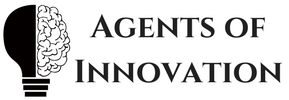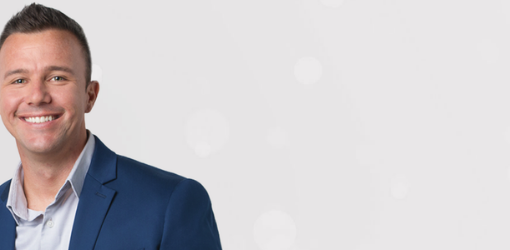Episode 84 of the Agents of Innovation podcast features Wade Eyerly and Dennis Murashko, the two co-founders of Degree Insurance Company. Through this new venture, they pioneer new products and tools that guarantee higher economic mobility for graduates starting with their flagship American Dream Insurance.
And they might be precisely the men to do it. So, before we get to the nuts and bolts of Degree Insurance Company, let’s start with a little background on our two guests.
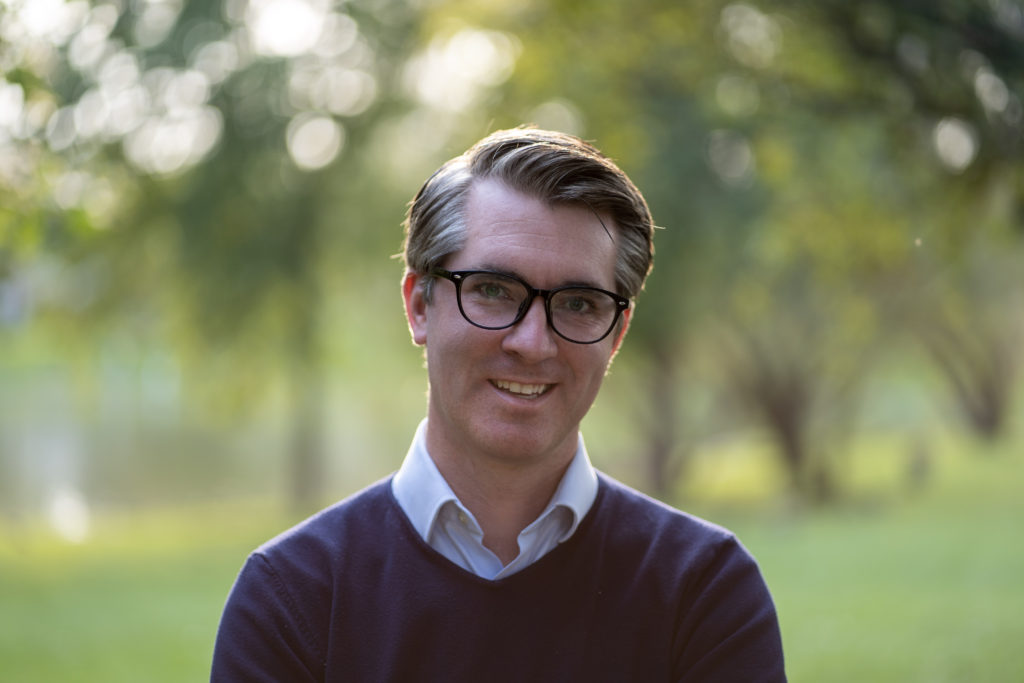
Wade Eyerly is a serial entrepreneur, the founder of two airlines, including Surf Air, the first all-you-can-fly subscription model airline. He’s worked in the national defense and intelligence community as a Russian-speaking intelligence officer for the Defense Intelligence Agency (DIA). He has also worked in human intelligence collection and served as an economist for the Pentagon covering Europe and NATO for a short time. Wade also helped to lead Lean Six Sigma process improvement efforts at the National Security Agency. He deployed to Iraq in 2009 and 2010, where he built quantitative models that were used to predict conflict and keep soldiers safe. Wade received the Secretary of Defense’s Medal for the Global War on Terror, as well as the Civilian Joint Service commendation for that work. Wade’s work is featured in the Harvard Business Review imprint. Get Back, and he’s considered an expert in early stage venture financing. Wade and his wife have three sons and live in New Canaan, Connecticut,
Dennis Murashko is a native Russian and the founder of DM legal strategy, LLC, and was a cofounder president and general counsel prior to founding his legal strategy firm. Dennis served as the general counsel and senior advisor to former Governor Bruce Rauner in Illinois, where he led a large team responsible for a wide range of legal, regulatory, and compliance issues in an organization with an annual budget of approximately $60 billion. Dennis began his legal career as a federal appellate law clerk, and then practiced appellate litigation at a large national law firm. In his past life, which might relate a little bit more to his current life, Dennis was an actuarial consultant, helping companies design and properly fund pension plans. When he’s not knee-deep in legal strategy, he’s helping his wife raise their four children in the suburbs outside Chicago.
Now, Eyerly and Murashko have come together to found the Degree Insurance Company. They do so at a time when there is over $1.6 trillion in student loan debt – now more than all combined credit card debt in this country. Today’s environment is also filled with many young people who are anxious to spend a lot of money, rack up debt that may take two or three decades to pay off, and graduate into an uncertain job market with the shifts in the economy that existed before COVID and the many more uncertainties that exist post-COVID.
“We’ve looked at higher education as effectively as the largest uninsured investment market in the world. It’s the only place you would counsel somebody to borrow 10 times their net worth, make a single investment with it, and just hope that it works,” said Eyerly. “For the last few years, we’ve sort of been building this product and now we can guarantee a student’s salary in the five years after they graduate.”
“The question is, should students have the confidence when they go to college that they are going to get what they’re paying for?” said Murashko. “That can translate into a number of different things. For us, the thing that we take away from it, the most important thing perhaps is if you know, if you have some confidence that college is going to work for you, that you’re going to get what you paid for, you’re likely going to stay and graduate. We see that about half of the students that enroll in American colleges today, they’re not going to graduate. That’s an awful statistic. They’re going to take out the debt and they’re not going to complete their degree. Because they’re not going to complete it, they’re not going to get the lift associated with a college degree. So, they’re going to walk away with the debt. They’re not going to get the increase in the salary that they’re hoping to get. That’s awful.”
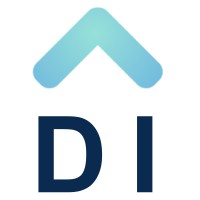
And that’s the gap that Degree Insurance Company hopes to come in and fill.
“Where we sit is right in the space where we tell them: college cannot not work for you,” said Murashko. “Stay in school, graduate. And with our product, you will have a guarantee that you have the salary level coming out of college. That will encourage more kids to graduate. That’s the kind of confidence that we’re building here to make sure that they are going to get what they paid for.”
“About half the kids who start college this year won’t finish,” said Eyerly. “Which means debt is immediate and the payoff is delayed. It means they get the debt and not the degree. We actively make those families poorer by having sent their kids to college. And so, if we can convince them to stick it out, that no matter what narrative is in their head … then society is better off, Americans are better off, but those families in particular, materially improved outcomes. So that’s really kind of where we started from, in trying to increase the graduation rate.”
In order for a student to be covered by the Degree Insurance Company, they have to finish their degree. This incentivizes the students to finish, and not drop out. It also helps those colleges and universities to not lose students – since a significant number of them lose students after year one. The customer, however, is not the student, it’s the college or university.
“So, imagine that a university buys it. They buy it on behalf of the incoming freshmen class and it’s a couple thousand dollars per student, one time, they pay for it upfront,” said Eyerly.

They then tell those students, based on the type of degree and major, they should expect to be covered up to a certain amount. For five years after graduating, they send their tax returns to Degree Insurance Company.
“If they don’t earn what we said, they would, we’d cut them a check for the difference at the end of that period,” said Eyerly. “So, they’re able to make better decisions. They’re understanding the impact of their major changes, etc. And we’re able to encourage them to get through and finish.”
“It doesn’t matter, for us, what field students are going to choose when they go off to work after college. And we know that when they’re in college, they can switch their major,” said Murashko. “For us, it’s the degree, right? It’s the signal and value of your degree. And that’s why we say you get absolutely no uplift from two years of college, when you go and you don’t complete your degree because you’re not going to get the benefit associated with that.”
“You never know what the future is going to hold and how your education relates to what you’re going to end up doing. But the more important point, of course, is that it’s the ability to stick it out and get the diploma, which is what the private sector values,” said Murashko. “We’re not signaling that everybody in the world should go to college … That is not the case. What we are saying is different. We are saying, it’s a fine choice not to go to college. We’re agnostic of that choice. There’s plenty of people who don’t go and they shouldn’t, and it’s a great decision for them. But if you do, the smart decision is to graduate.”
“But if you do go, stick it out and graduate, because that is still better,” said Murashko. “And some of the marginal cases where we hear kids dropping out, and then they go and they build these multibillion dollar companies, they’re exceptions. That’s not even close to being the rule. So even though we hear about exciting opportunities of what happens when you drop out of college, if you look at it across the board, that is not the smartest choice.”
Murashko says their plan is not about weighing the choice between going to college or not going to college. For the employer it’s: “do you prefer somebody with two years of college or do you prefer somebody with a college degree? And I think in every case or 99 cases out of a hundred, it’s going to be the kid with a college degree, as opposed to the kid who had two years of college.”
The main “customer” of Degree Insurance Company, is not the student, it’s the university. “The university buys it, essentially guaranteeing their work product,” said Eyerly. For an 18-year old kid, taking out a student loan, “is their first legal contract they can sign at 18. It’s the most expensive thing they’ve ever bought,” he explains. “And we tell them, borrow as much money as you can by which we usually mean go to the best school you can. And put it all on you. You’re betting on you. What a great thing. But you wouldn’t debt finance and invest into some other single stock and then just hope it works five years from now.”
Degree Insurance Company is hoping to change this equation by having the university insure that investment. “The university is the one who buys [the insurance] and says, yes, we guarantee it’ll work. And then, the student gets to be the claimant on the backend.” says Eyerly.
For universities that buy this insurance, it becomes a competitive advantage for them. “The lifetime value of the university’s customer grows,” said Eyerly. They thought they were going to get eight to ten semesters of tuition from that student. Instead, they only got three. If you can get them back up to eight, that’s a massive win for them.”
Eyerly and Murashko don’t believe that universities, after buying the insurance, will pass on this cost to students. Of the schools they’ve engaged with, they’ve been told there is immense pressure to keep tuition low. And ultimately, with more students staying on longer, because of the insurance, it keeps those students paying tuition for a longer-term than they previously expected them to.
So, how do Eyerly and Murshako determine what kind of pay each student should expect to make based on their degree? “We’ve collected the data that allows us now to price for every college in the United States, for every major we know what the distribution curve looks like. And then what we do is aggregate all of that information and we can tell a school for X amount of dollars per student,” said Murashko. “The coverage is going to depend based on the major, the check that should be put on your diploma.”
One question this raises is whether, by creating the insurance, does this change behavior? If a graduate is guaranteed an amount of pay, what incentivizes them to work hard to make the same money they might get? That’s part of the reason that the payout doesn’t come until five years after they graduate.
“That sort of delay and gratification is really important. People tend to cheat in the short term,” said Eyerly. “A check five years from now? You still got to live. You got to make it through those five years. You got to look for work. You still got to try.”
“The amount of people that are going to take a suboptimal job for five years, knowing that there’s a chance somebody else might pay some of their student loans later is probably pretty low. Certainly, it’s a risk we’re willing to take.”
In addition, if you go to graduate school or engage in volunteer activities like the Peace Corps, Teach for America, or a church mission, as some examples, they will pause your insurance for those years and pick it up on the end of that.
“What we are trying to guarantee is the return on investment,” said Eyerly. The college graduate is responsible for the base pay they could have made without college. Degree Insurance Company is insuring the difference they should be able to make with their college degree.
And, like any other insurance company, Degree Insurance company is backing the risk and they have set up a model where they not only help the claimants, when needed, but they also expect to make a profit.
Putting all the pieces together to create a validated insurance company has taken almost three years. “It’s not an overnight that you get to build a new insurance company,” said Murashko. “You have to convince the regulators that you know what you’re doing, that you’ll have sound actuarial principles backing up your work, that you’ll have your compliance set up – and it’s us.”
Their challenge have included raising capital, returning money to an investor who got indicted in December 2019 for an alleged crime (that is unrelated to their insurance company), and then, of course facing the unanticipated COVID19 pandemic just as they were publicly launching the company in March.
“There’s a lot of building a startup that is just putting out fires. There are enough fires we will cause ourselves, but putting out significant ones that we didn’t have anything to do with has probably been the biggest thing that slowed us down to date,” said Eyerly.
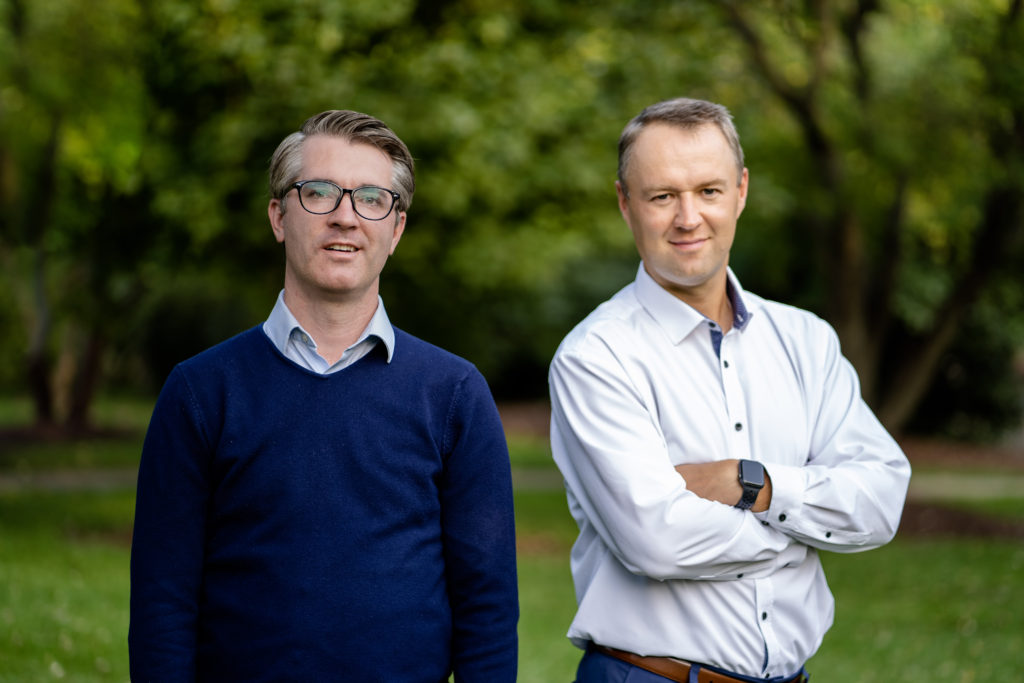
Luckily, Eyerley and Murashko had each other as business partners and a great team. “I’m fortunate, right? I don’t know who else I could build this company with,” said Murashko. “I’m working with the best guy to do it with Wade. We’re completely in sync on how we’ve managed the process. You have to trust your team. You have to trust your co-founder. As you go looking for co-founders to build your business – Wade is taken – find a Wade clone to build a business and you’ll be alright.”
They also believe they are not just building a company, but helping to save the American Dream for millions of students and families and so they are working tirelessly to provide this product despite every obstacle thrown their way.
“Higher Ed is a massive employer in the United States. It’s a driver of incredible, incredible economic movement. We can’t sort of lose Higher Ed,” said Eyerly. “The model of higher education in the United States is the model for the world … This is the ladder of the American Dream. Come here, work hard, get an education, and you’ve got a better chance of dying wealthy if you were born poor than anywhere in the world. And that was true for a couple of hundred years. Now, we’re about 15th in the world.”
Higher Ed is experiencing small incremental drop offs in enrollment and Eyerly points to the fact that in 2028, there will be about a 12-13% drop off simply because around the time of the great recession in 2009, many would-be parents decided not to have kids, or as many kids. So, the drop in birth rates around that time are going to produce a lot lower number of kids who won’t be showing up on campus around 2028. And now, COVID is also reducing the amount of students showing up in the fall of 2020 and beyond. “What we feel like we can offer that has never been there before is some confidence in a period of tremendous economic uncertainty” said Eyerly.
“For most of us, that degree is a sort of a formative experience and it’s been part of who you are and you need it in a variety of fields – even if 80% of people don’t work in their own career field,” said Eyerly. “This generation right now has the least positive outlook on what the future is going to be of any generation since World War II. So, if we can be there alongside them saying, look, it’s going to work for you. It doesn’t matter. We’ll take the risk on us. You don’t have to worry about it, your outcome’s guaranteed. You just got to study. We can spread that risk across. We can do good things with that.”
“HBCUs are a really good example of schools who do what we think higher ed does,” said Eyerly. “They take kids and they improve their economic output by graduating. You take kids whose opportunity sets were different and then you give them a chance to move permanently into the middle class. It’s a very different mission than the one Harvard does today who mostly keeps rich kids rich. [HBUCs are] actually helping that American Dream and they’re doing it for folks who often don’t have the same sets of access and other things. It’s a really good targeted set of schools. There’s 101 HBCUs in America and 90 plus percent of them were already sort of at risk of financial solvency. They don’t have big endowments. They’re sort of living on the edge of tuition and that’s what they spend in the budget to zero out at the end of the year. If we lose HBCUs in America – a massive pipeline that’s been so critical to what the American Dream is – what we all believe it to be, goes away. It really would be a big stain on us as a nation to not be able to secure that,” explains Eyerly.

“For a hundred million dollars, we could guarantee the outcomes of every new student at an HBCU in America for a tiny fraction of what we’re actually spending in Higher Ed. We can much more materially impact the lives of an entire sort of generation of folks and move them into that middle class and do that very, very well. That’s an example of a place where we think given what COVID is, our product became timely in a way that we hadn’t anticipated. We can do a tremendous amount of good if we can get into those schools, if we can convince them, you know, that it makes sense.”
“Going to college is not a hundred percent solution for everybody. There’s fine career fields out there where you can make an honest living and go in a lot of different things,” said Murashko. “But nobody is getting to the heart of it. How do you give the confidence to a college in common freshmen that sticking it out is better than not? The vast majority will go to college because it still is the place where the most opportunity is that likely going to be open to you.”
“Oxford University is older than the Aztec Empire. The university system is not likely to go anywhere,” said Eyerly. “So, the question is, how do we adapt that system to what our world is now?
Higher education has become so expensive these days that most students are taking out student loans and amassing tons of debate. Eyerly says the question should be: “Can we be efficient with those dollars by saying: there’s a real return on investment? This is what you’re trying to buy. Let’s make sure you get that. Let’s do that. You want to reduce the default rates and student loans, right? Let’s make sure they’re earning what they should on the way out. We think that the insurance can drive some good outcomes in higher education.”
Murashko sees his own American Dream as part of the larger story for millions of Americans, including immigrants. “Part of what’s exciting to me about building this company with Wade and encouraging students to complete their education is because I grew up in Russia. I came here in high school. I’m a beneficiary of excellent education opportunities in this country – first as an actuarial science student at a college in St. Louis, then law school in Chicago,” said Murashko. “To me, it all connects and it’s actually something that I stole from Steve Jobs when he gave his famous commencement address at Stanford. He said you cannot connect the dots from A to B to C looking forward. You just have to have some faith. He chose it as a nondenominational kind of faith. You can believe in some deity, you can believe in yourself, whatever it is that you have a faith in, just have the faith that the dots are going to connect, because at the end of your career, you’re going to be able to look back and you will say, ‘Oh, it’s choice A that led to choice B to C to D and then you’re a huge success, but you have no idea whether that’s going to be there at the outset.” He added, “I would keep a very, very open mind very early on in your educational journey and just trust that those dots are going to connect.”

At the end of the day, Degree Insurance Company is hoping to be part of that equation to save the American Dream through a college education.
You can listen to the full interview on Episode 84 of the Agents of Innovation podcast, on Apple podcasts, Amazon podcasts, Stitcher, and SoundCloud. You can also follow the podcast on Facebook, Instagram, or Twitter.
Please consider supporting the Agents of Innovation community by becoming a member of our Patreon page today, starting at just $5.00 a month!
